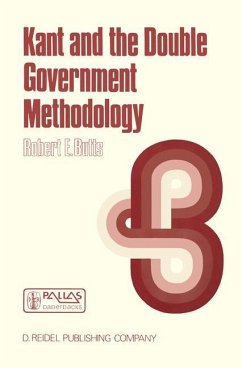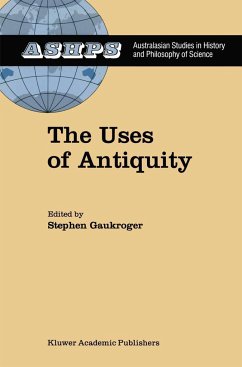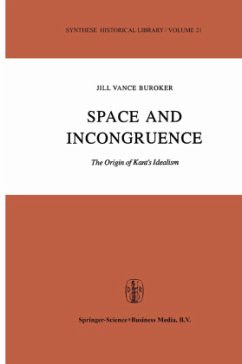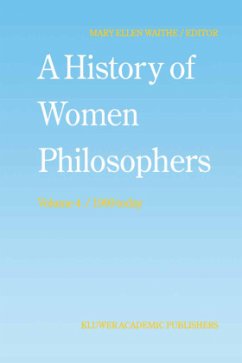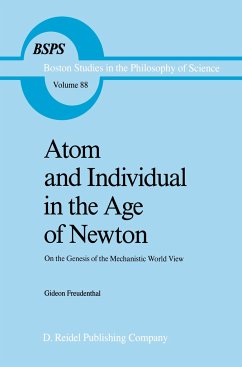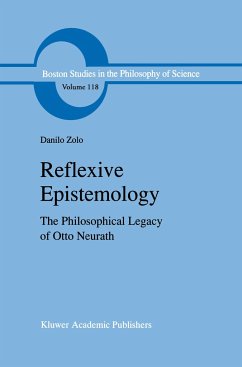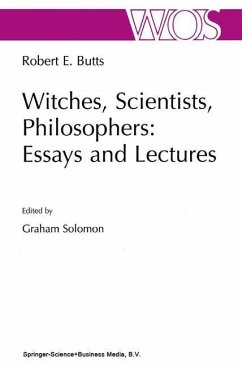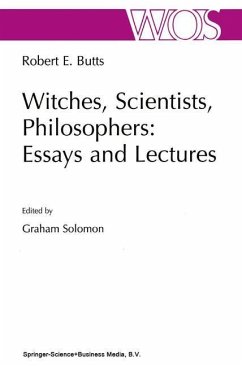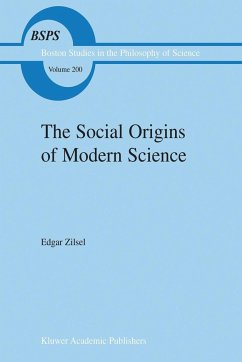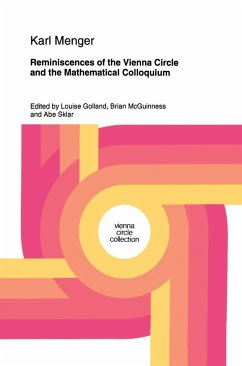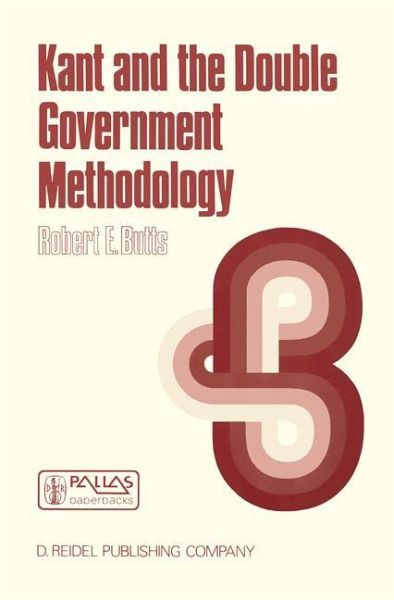
Kant and the Double Government Methodology
Supersensibility and Method in Kant's Philosophy of Science
Versandkostenfrei!
Versandfertig in 1-2 Wochen
115,99 €
inkl. MwSt.
Weitere Ausgaben:

PAYBACK Punkte
58 °P sammeln!
This is a book about dreaming and knowing, and about thinking that one can ascertain the difference. It is a book about the Bernards of the world who would have us believe that there is a humanly uncreated world existing en Boi that freely dis closes its forever fixed ontology, even though they too must accept that -many of the worlds we make as we try to under stand ourselves are counterfeit. It is a book about the real estate of the human mind. The book is about Leibniz and Kant, and about methods of science. It is also about what is now called pseudo-science. It tries to show how Kant strug...
This is a book about dreaming and knowing, and about thinking that one can ascertain the difference. It is a book about the Bernards of the world who would have us believe that there is a humanly uncreated world existing en Boi that freely dis closes its forever fixed ontology, even though they too must accept that -many of the worlds we make as we try to under stand ourselves are counterfeit. It is a book about the real estate of the human mind. The book is about Leibniz and Kant, and about methods of science. It is also about what is now called pseudo-science. It tries to show how Kant struggled to mark the limits of the humanly knowable, and how thi s strug gle involved him in trying to answer questions of importance then and now. Some are philosophers' questions: the epistemo logical status of mathematics, the role of space and time in knowing, the nature of the conceptual constraints on our ef forts to hypothesize the possible. Some are questions of per ennial human interest: Can spirits exist? How is the soul re lated to the body? How can we legitimately talk about God, if at all? Finally, Kant teaches that these are all questions bearing on our entitlements in claiming to know. Leibniz fashioned a way of talking about nature and super nature that I call the Double Government Methodology.





